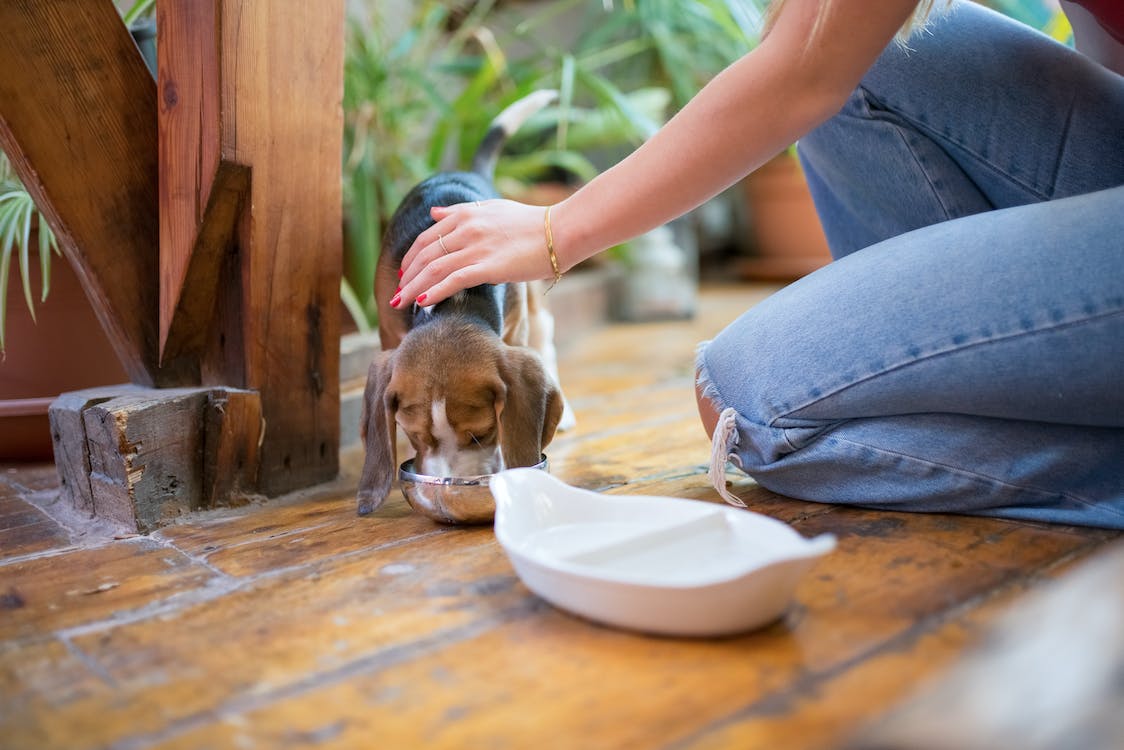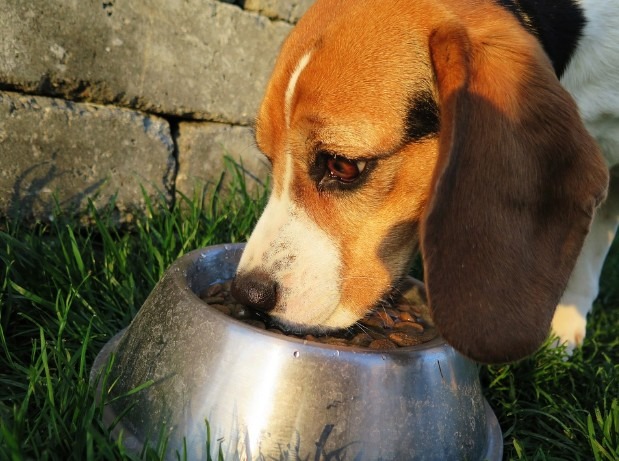Having a dog is a big responsibility that should not be taken lightly. It is important to know the time commitment that it takes to raise one and keep it healthy throughout their lifetime. Knowing the proper nutrition for your dog will help keep them strong and healthy. Contrary to popular belief, dogs cannot eat everything. Just like humans, they have their own preferences and foods that are good and bad for them health-wise. It is important to educate yourself on all the do’s and don’ts of your dog’s nutritional requirements, especially as a puppy when their growth is the most important.
Puppy Feeding Fundamentals
Growing puppies should be fed food that is specifically made to their diet to meet the needs of development. It is important that within the first 12 weeks, four feedings of unmoistened dry food per day are maintained. Within the next 6 months of your puppy’s life, the feeding rate can be reduced to three a day. Within 12 months feeding should be done twice daily. If a puppy is neutered this lowers their energy requirements so in this case, you can switch from nutrient-rich puppy food to adult food. At 1 year old, you can switch to two half portions per day. If you visit this site, experts say that to determine what proper foods a dog can eat, the general rule of thumb is that owners should watch how their dog’s body changes and not what they give them to determine the right portion sizes because they usually depend on the dog’s metabolism and body type. If a puppy skips a meal, then the owner should not be as long as there is not any other unusual behavior. If your dog seems to be themselves, then there isn’t really a cause for concern.
General Guidelines To Do’s and Don’ts
Feeding a dog adult food or scraps that you have left over from your own food is very tempting. But not everything is worth sharing with them.
Some general foods that you should and shouldn’t give are the following:
DO’s
-
- Fish: any fish with the skin on is very rich in Omega 3 fatty acids, which helps with the immune system of your dog and helps them get a healthy and shiny coat.
- Sliced Apples: Apples are full of Vitamin K, Vitamin C, and calcium. They should be served peeled with no seeds and chopped into pieces before giving to your dog.
- Baby Carrots: Carrators are great for a dog’s teeth. They contain low calories with high fiber, including Vitamin A which can be great for eyesight.
- Cooked Chicken: It is important that the chicken is cooked properly and has no bones. This is a great meal for any dog due to it being rich in protein.
- Lean Meat: Again, meat should be fat-free and cut up into small bites and fully cooked.
- Cauliflower: Cauliflower contains sulforaphane, which has been shown to help prevent cancer and digestive problems in dogs. Cauliflower also contains choline, which aids with brain health.
DON’Ts
-
- Avocado: There are misconceptions out there that avocados are good for your dog because they are very healthy and recommended food for most people. However, the high-fat content in avocados can put dogs at a risk for heart disease and weight gain. Additionally, a lot of dogs have a reaction to avocados and experience an upset stomach, vomiting, and diarrhea.
- Broccoli: This vegetable contains isothiocyanate, which can cause an upset stomach in canines.
- Chocolate: Theobromine found in chocolate will cause vomiting, diarrhea, seizures, and heart problems.
- Processed Meats: Most processed meats like ham contain salt and preservatives and are very rich in fat. This can cause fatty liver and pancreatitis so are not recommended for dogs.
- Bones: Contrary to popular belief, a full bone should not be given to a dog because they can choke on their splinters or disturb their digestive system. Instead, it is recommended that bones are finely powdered.
- Citrus fruits: Any fruit like oranges and lemons containing citrus are not meant for dogs because they can cause sensitivity to light, problems with the nervous system and upset stomach.
- Candy: Giving candy to dogs should not be done because high amounts of sugar can make them diabetic and is generally not good for oral health.
Ensuring that our dogs grow up to be healthy is something that most loving owners care about. However, not everyone is educated enough to know and understand what is best for their dogs. Giving regular food that is recommended and healthy for most humans, might not have the same effect on dogs. Owners should be extra careful, especially in the early stages of their lives when nutrition is even more important.


